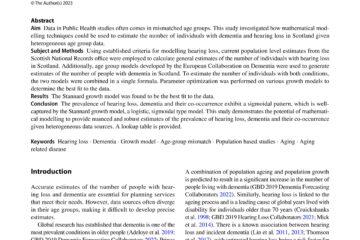Intersectionality in Research: Unveiling the Complex Tapestry of Human Experience
Published by Blog Editor on
Intersectionality in Research: Unveiling the Complex Tapestry of Human Experience
In today’s world, understanding the complexity of human experience requires a multifaceted approach. That’s where intersectionality comes into play. It acknowledges that our identities and social categories intersect, shaping our lives. By considering intersectionality in research, we move beyond a one-dimensional understanding of individuals and communities.

Intersectionality in Research
In healthcare, intersectional research sheds light on how multiple identities affect access to resources, health outcomes, and quality of care. Examining comorbidities through an intersectional lens reveals the interconnected influence of various identities and social factors on health, highlighting disparities among populations. Healthcare approaches can become more comprehensive by addressing the unique challenges faced by individuals with multiple comorbidities, ensuring equitable access and tailored interventions.
In education, an intersectional lens helps identify and address barriers faced by students from diverse backgrounds, promoting inclusivity and equitable opportunities. Intersectionality also drives social justice movements, amplifying the voices of marginalised groups and dismantling systemic discrimination. By collecting and analysing data through an intersectional lens, researchers gain deeper insights into the factors shaping individuals’ experiences.

A female researcher analysing data
Collaboration among researchers from diverse backgrounds enriches the depth and breadth of intersectional research. Embracing intersectionality in research helps us appreciate the intricacies of the human mosaic. Together, we can strive for a more inclusive and equitable world.
Please visit our videos about Mixed Methods Research Designs, Cross-Sectional Data Collection and Quantitative and Qualitative Research.


